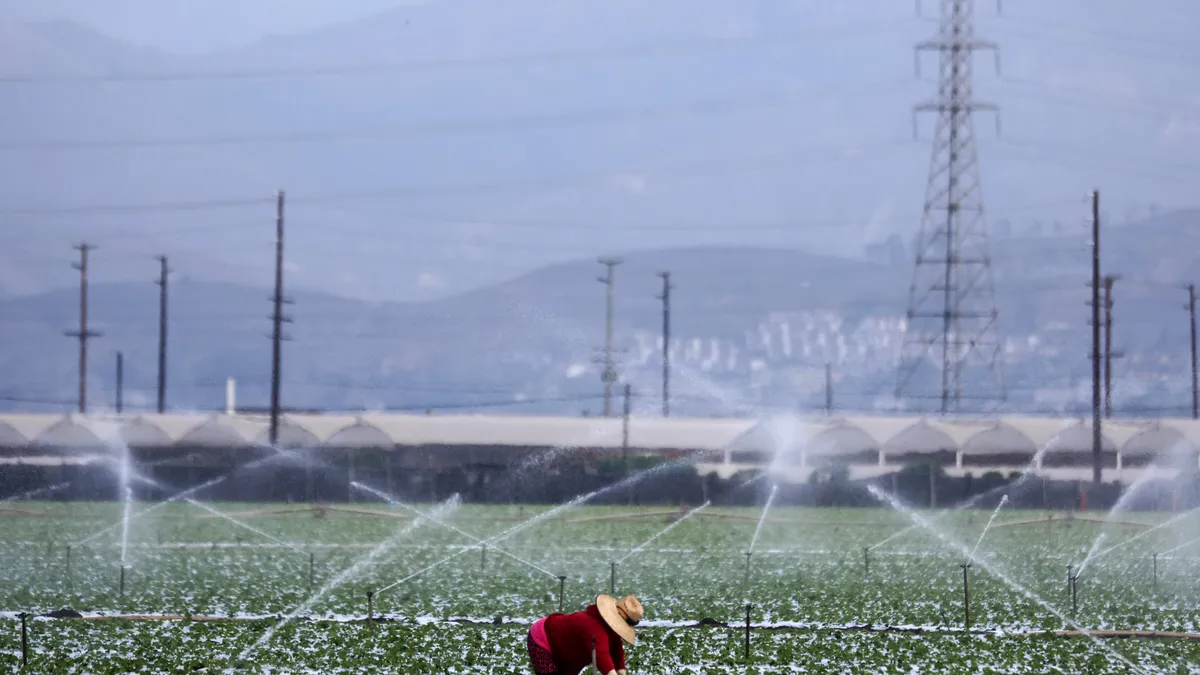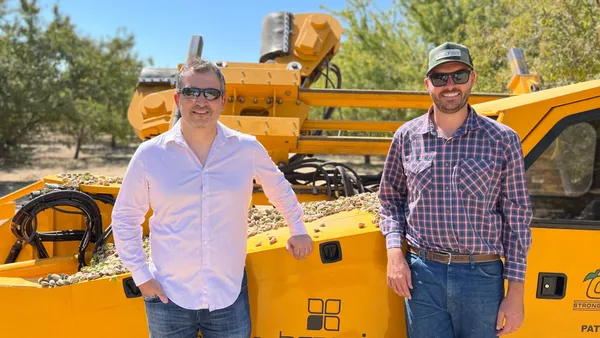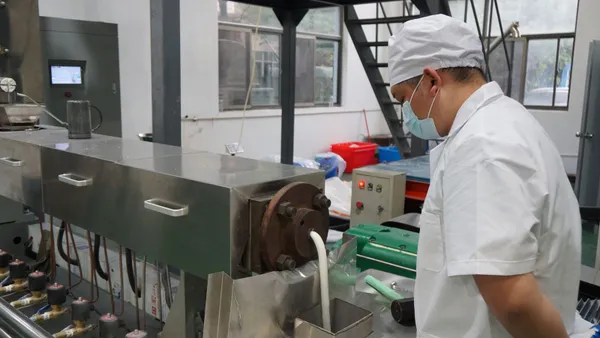Dive Brief:
- The U.S. Department of Agriculture will spend $300 million to better track farming's greenhouse gas emissions and monitor how much carbon is saved through the adoption of climate-smart production practices, the agency said Wednesday.
- The investment will be used over the course of eight years to establish soil and greenhouse gas monitoring networks, a statement said. The agency will focus on tracking the impact of technologies such as enhanced efficiency fertilizer, feed additives and the use of organic soils, according to a document outlining its federal strategy.
- Funding for the initiative comes from the Inflation Reduction Act, which earmarked nearly $20 billion to advance sustainable agriculture and forestry practices. The Biden administration aims to slash U.S. greenhouse gas emissions 50-52% compared to 2005 levels by the end of the decade.
Dive Insight:
A lack of quality data has hampered efforts to understand which farming practices best support conservation efforts.
Current quantification methods within the USDA are coarse or in some cases nonexistent — for example, the agency said in its federal strategy there is currently no method to measure the impact of sustainable practices such as changes to animal diets, water management practices for rice production, or the timing and application of nitrogen fertilizer.
“One of the big remaining technological challenges for tackling the climate crisis is ensuring that natural solutions in agriculture and forestry are working well,” John Podesta, senior advisor to the president for Clean Energy Innovation and Implementation, said in a statement. “Today’s USDA announcement of $300 million from the Inflation Reduction Act to measure and verify emissions from those sectors is a big step in the right direction.”
Agriculture made up 10% of emissions in 2021, and the sector has become a larger focus of greenhouse gas reduction efforts given the land's ability to act as a carbon sink. Carbon sequestration efforts, however, have stalled due to cost hurdles and a lack of technology to verify emissions savings.
The Food and Agriculture Climate Alliance, a coalition of trade associations including the American Farm Bureau Federation, said the USDA investment will help farmers participate in a burgeoning carbon-offset market, which is dependent on accurate emissions data.
"This work is critical to enhancing trust and confidence in the measurement of emissions outcomes that will allow new markets to flourish," the group said in a statement











